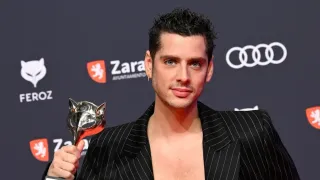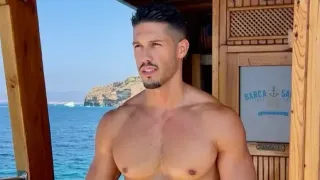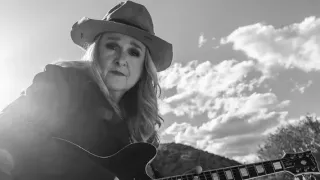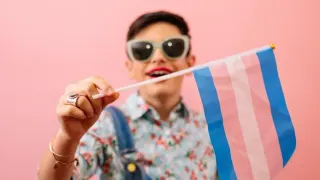June 15, 2020
Cosmetics Firm CEO Apologizes after Backlash from Confronting Homeowner
Daisy Nguyen READ TIME: 2 MIN.
The CEO of a cosmetics company issued an apology Sunday after a video was widely shared online showing her and her husband confronting a man and threatening to call police because he stenciled "Black Lives Matter" in chalk on his San Francisco property.
The video, which has been retweeted 155,000 times, has sparked accusations of racism and led a cosmetics distributor to cut ties with Lisa Alexander, founder and CEO of LaFace Skincare.
"There are not enough words to describe how truly sorry I am for being disrespectful to him last Tuesday when I made the decision to question him about what he was doing in front of his home," Alexander said in a statement. "I should have minded my own business."
The video, which first appeared Tuesday on the Facebook page of James Juanillo, shows a couple asking him whether he lives in the house before asserting that they know he doesn't live there and is therefore breaking the law.
Juanillo doesn't answer the couple, but invites them to call the police. The couple then walk away, with Alexander responding: "Yes, we will do so."
The video stops short of showing what happens next. Juanillo summed up the encounter on Twitter: "A white couple call the police on me, a person of color, for stenciling a #BLM chalk message on my own front retaining wall."
He added that Alexander "lies and says she knows that I don't live in my own house, because she knows the person who lives here."
Juanillo, who is Filipino, told KGO-TV he believes the couple accused him of defacing private property because they didn't think he belonged in the wealthy Pacific Heights neighborhood.
He said a police officer pulled up several minutes after the encounter and drove away after recognizing Juanillo as a longtime resident.
The social media furor over the video led Birchbox, which distributes beauty products via a subscription service, to announce Saturday that it has cut ties with the company over Alexander's "racist actions."
"When I watch the video I am shocked and sad that I behaved the way I did," Alexander's statement said.
She said she was committed to learn from the experience and wants to apologize to Juanillo in person.
Juanillo said Sunday that he would be open to talking with Alexander. He said in the last several days neighbors have left flowers and notes expressing support, with many adding chalk art to the retaining wall and sidewalk.
"For me this experience has left me feeling vindicated and validated. I imagine that she regrets those couple of minutes," he said. "Do I believe that her life should be destroyed over this? No. I just hope that she realizes that what she did was racist and she can improve from this incident."
___
AP Photographer Jeff Chiu contributed to this report.






